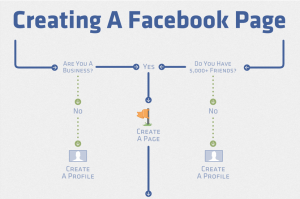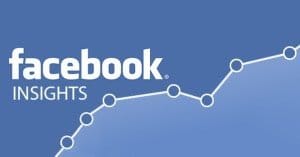 Written by ContentPowered.com
Written by ContentPowered.com Many, perhaps even most, businesses dive into Facebook looking for an immediate return on their investment through Facebook ads. In part this is our fault, and other blogs like ours, for promoting how great Facebook ads can be. It’s all true, of course; Facebook ads can be extremely potent. The problem is, so many businesses just aren’t in the right position, and they aren’t using the system to its fullest extent, so they have trouble even breaking even. This is why a Forrester research poll of nearly 400 businesses had them rank Facebook last amongst a dozen options for marketing.
Many, perhaps even most, businesses dive into Facebook looking for an immediate return on their investment through Facebook ads. In part this is our fault, and other blogs like ours, for promoting how great Facebook ads can be. It’s all true, of course; Facebook ads can be extremely potent. The problem is, so many businesses just aren’t in the right position, and they aren’t using the system to its fullest extent, so they have trouble even breaking even. This is why a Forrester research poll of nearly 400 businesses had them rank Facebook last amongst a dozen options for marketing.
Facebook is Awful for Customer Acquisition
This is probably the biggest stumbling block for new businesses looking to grow through Facebook. Facebook has some of the lowest reach and least engaged users of any social network anywhere. In part, this is because for nearly a decade, businesses have been trying to push through every possible avenue to monetize and advertise on the platform. Posts, ads, images, videos, apps; it’s all been leveraged for marketing purposes.
Facebook users are tired of it, so they tend to block out and ignore advertising messages. Those who don’t use a browser-based ad-blocking extension have the mental equivalent in place, to ignore all but the most outstanding sidebar ads. Only promoted posts make it through, and the best of those make it because they’re impossible to distinguish form normal posts.
The caveat to this is the potent nature of the Facebook targeting options. You can, with the base foundation of a certain scale of audience, grow your audience through skilled targeting. This requires two things, however. First, it requires that you have a large enough audience on Facebook – or on a mailing list you can use to find them on Facebook – to support the lookalike audience. Second, it means you have to be skilled enough with the advertising platform to create a lookalike audience, develop ads that appeal to that audience, test those ads and contact that audience successfully.
There are simply too many points of failure for many small businesses to make the investment successfully without additional tools, training or support.
Facebook is Great for Building Brand Presence
You’ll see that most marketing messages on Facebook these days end up with goals assigned to them. Those goals aren’t conversions, they aren’t page likes, they’re engagement metrics.
This is because brands aren’t looking to grow their customer base on Facebook. Instead, they’re looking to establish their reputations and grow their individual branding. A successful Facebook page is a great source of people flowing to your website, on a regular basis, whenever you post a new update that leads to your blog.
It’s on your site that you bring the conversions to bear. You can even track which people converted based on something you posted on Facebook, but honestly, how useful a metric is that to track? Sure, knowing which posts bring in the most conversions is good, but you’re not doing it through your sponsored posts or ads. You’re doing it through building a brand with enough leverage to attract users who want to convert. They convert because they trust you, and they trust you because of your Facebook page and their interactions with it.
The Atmosphere May Change with Atlas
If you’ve been paying attention to Facebook news over the last few months, you’ve probably heard about Atlas. Atlas was a company purchased by Facebook from Microsoft for a steep fee last year. Why is it so important?
Facebook has a potent advertising tool, and that tool is entirely fueled on the information they track about individuals. Any given person has a whole selection of tracked interests, life events, demographics and a range of other information kept about them, all in Facebook’s advertising databases. The problem with this, the biggest limitation, is that it’s all stuck on Facebook.
Atlas changes this. The goal behind Atlas is to provide that information to track people across the Internet. Rather than being limited to Facebook, those targeted ads will be able to follow you throughout the web, to any site you visit.
Facebook works in conjunction – or in a stalemate, depending on your perspective – with Google for advertising. Facebook is great on Facebook, but if you’re working outside of the social network, you need to use Google. Atlas gives Facebook a means to compete, or even dominate, outside of their own platform.
Rather than view individual people as stacks of data and dollar signs, however, Atlas attempts to track people as people. It tracks your individual habits, even across devices, across platforms and across the world. The ideal becomes highly targeted, effective and potent advertising. Advertising you want to see, because it’s essentially tailored specifically for you.
From a business perspective, this means all the flaws with Facebook for customer acquisition and conversion are eliminated. Once Atlas gets going, it will change the game.
Running Basic Facebook Ad Tests
All of this is interesting, but it’s not practical. How do you, as a small business owner, determine whether or not Facebook ads will work for you?
The answer is, you have to run your own ad campaign on a trial basis and see. Before you do, you need some setup.
First, export your mailing list. This will be imported into Facebook to generate an audience. Once you have that audience, you can generate a lookalike audience. You will use both of these.
Assuming you’ve use other non-Facebook forms of advertising, adapt one of those successful ads for the Facebook platform. This might involve changing the dimensions of the image attached, or altering the copy to match.
Target your audience or your lookalike audience, depending on your goal. If your goal is to bring in new customers, use the lookalike. If your goal is to get existing customers to follow a page, use that audience. Either way, target the right audience with your ad.
Set the right goal metric. This depends on what you want to accomplish. Page likes are good for growing your audience or getting your existing audience on board with your page. Website clicks are also good. Avoid the meaningless tracking, like reach; that’s just exposure and tells you nothing.
Once you’ve run this basic ad, see how it stacks up to not having run the ad, or having spent a comparable budget on a different ad program. It’s up to you to judge whether your ads were effective.


